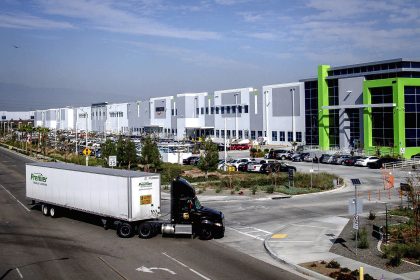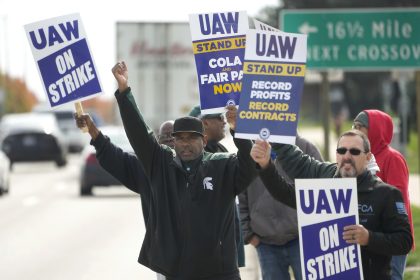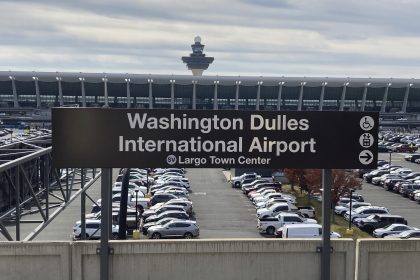Railroad Unions Reject Labor Contract in a Potential Blow to US Economy

WASHINGTON — Railroad unions that rejected a proposed labor contract on Monday are threatening the nation’s economy as the Christmas season approaches.
The “no” vote by the unions sets the stage for a strike as soon as Dec. 9, unless Congress intervenes to stop it.
Economists estimate a strike could cost the U.S. economy as much as $2 billion a day. About 30% of U.S. freight is carried by rail, everything from coal to gasoline to food to automobiles.
Engineers and conductors were dissatisfied with work rules and quality of life issues in the tentative contract, particularly staffing levels and paid sick time.
After four unions voted down the contract, the Sheet Metal, Air, Rail, Transportation Union (SMART-TD), the largest freight rail union representing 28,000 conductors and other trainmen, issued a statement holding out hope a strike could be averted.
“SMART-TD members with their votes have spoken. It’s now back to the bargaining table for our operating craft members,” said SMART-TD President Jeremy Ferguson. “This can all be settled through negotiations and without a strike.”
If unions cannot resolve their differences with the nation’s biggest freight railroads, congressional leaders have said they might intervene to keep the trains running.
Federal law grants Congress a right to impose any contract it considers necessary to avoid interruption to the economy.
Two Republican senators, Roger Wicker of Mississippi and Richard Burr of North Carolina, already introduced legislation to impose a contract on the 12 unions that voted on whether to ratify the tentative agreement. Eight of them approved it but four rejected it.
Further action in Congress on any legislation was postponed until after the ratification vote that was announced Monday.
Before the vote, President Joe Biden praised the tentative agreement as “a win for tens of thousands of rail workers and for their dignity and the dignity of their work.” He personally intervened to encourage further negotiations leading to the proposed contract.
There’s no doubt the deal would give rail workers the extra money they wanted. It would give them an immediate 14% raise with back pay to 2020. Over the four-year life of the contract, their raise would total 24%. They also would get cash bonuses of $1,000 per year.
Paid sick leave was the main point of contention. Railroad management rejected the unions’ request for additional sick leave benefits.
After SMART-TD, the biggest union to vote no on the deal was the Brotherhood of Locomotive Engineers and Trainmen, which represents about 24,000 engineers.
The Association of American Railroads, a trade association for railroads, urged Congress to act if the next round of negotiations fails before the Dec. 9 strike deadline.
“A work stoppage would have disastrous impacts on the economy, rail customers and the American people,” the association said in a statement. “While railroads remain committed to reaching agreements with these remaining unions, the timeline for those to occur is short.”
Tom can be reached at [email protected] and @TomRamstack
























